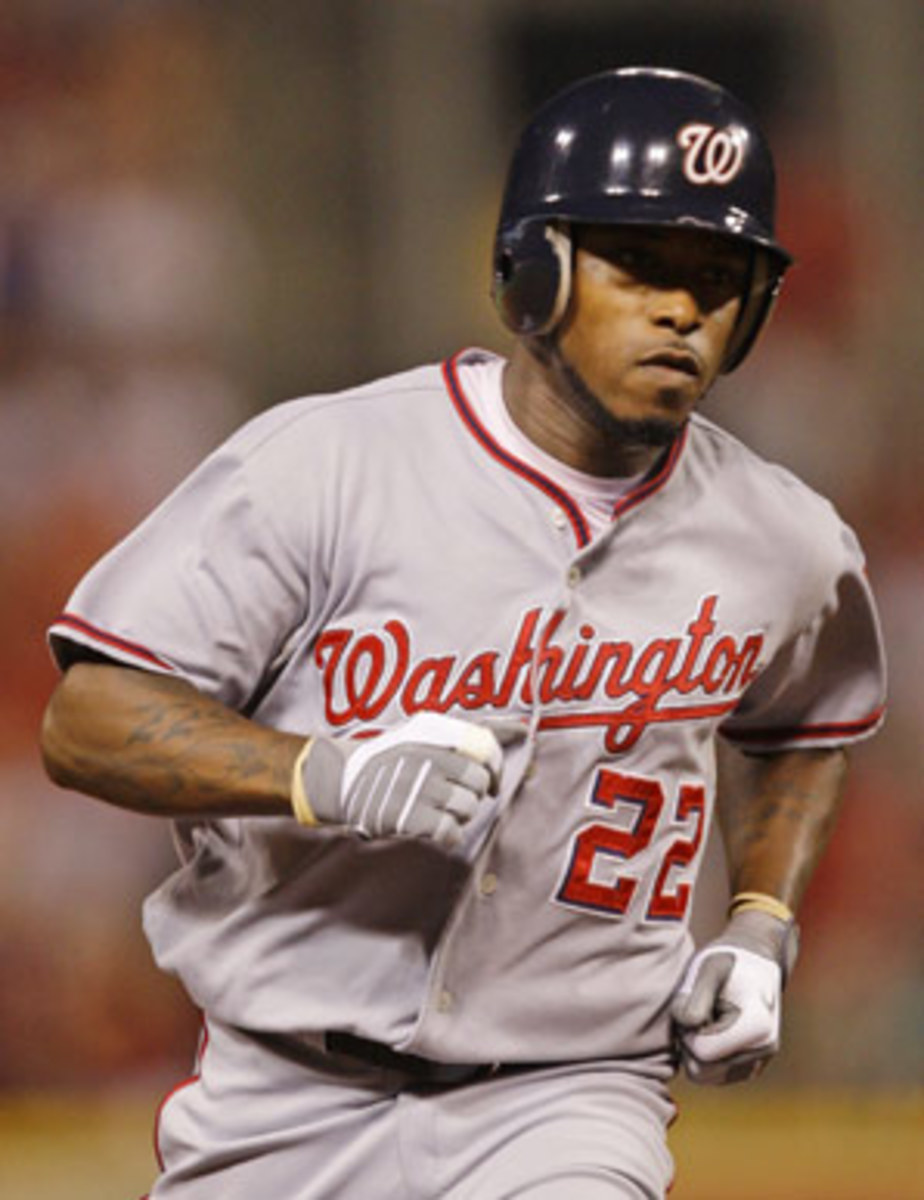Once hotshots, veterans struggle to hang on at spring training


PORT ST. LUCIE, Fla. --With a wad of tobacco filling up the left side of his mouth, Willie Harris looks somewhat like a boxer who's taken one too many hits to the cheek. Which, of course, he's not. Harris is actually a baseball player who's taken one too many hits to the psyche.
Ever since the Baltimore Orioles selected him in the 24th round of the 1999 amateur draft, Harris has spent his life going up and down, left and right, in and out. He has played for seven different minor league teams and six different major league ones (should he make the Mets this spring, that'll be seven). He's heard all the complaints -- no power (he hit a career-high 13 homers with Washington in 2008), mediocre on-base percentage (.327 lifetime), weak all-around bat (.239 lifetime average). Yet somehow, against most odds, Harris has survived nearly 10 major league seasons, even winning a World Series title with the 2005 White Sox. "I just play hard," he says. "I keep driving forward."
Yet as he sits on a stool here inside the Mets' spring training clubhouse, Harris finds himself in an odd -- yet common -- position. Approaching his 33rd birthday, the speedy utility man is in a fight not merely with Scott Hairston and Fernando Martinez for a backup outfield job, but against time.
That's the oft-unspoken part of spring training. While everyone seems to focus in on the spirit of renewal and the hot young players surging through the various systems, veterans often slog into myriad camps, beaten down by the routine and increasingly vulnerable to the new young hotshot stealing his spot. Having hit .183 in 262 at-bats with the Washington Nationals last season, Harris was hardly surprised when the team let him walk. That the Mets expressed interest was, he decided, a blessing.
"When you're young and you're fighting to make it, you think everything is going to be smooth and easy," says Harris. "You've done well your whole life, so why should it change? But it does. Baseball is hard. There's always someone looking to take your job, someone always breathing down your neck. It's a lot of pressure, especially as you age and the team's starting to look younger. But I love it. I can't help but loving it."
As Harris spoke, he was eyed from across the room by Russ Adams, a fellow non-roster invitee. Not that long ago, Adams was the nation's top shortstop prospect -- a slick-fielding, gap-hitting University of North Carolina superstar who was tabbed 14th overall by Toronto in the 2002 Draft. Like Harris, Adams had his assumptions about major league life. That he would immediately succeed. That his career would be long and fruitful. That the All-Star Games and World Series titles were mere formalities.
"I still think it all can happen," said Adams, 30, who has played in eight major league games since the start of 2008. "I need some breaks, and I have to play better than I have. But it can happen; I definitely believe it."
The hope hangs there. One can all but feel it, floating above from wannabe star to wannabe star. Before the Mets' players took the field, they passed around a newspaper that featured Derek Jeter's new $7.7 million mansion. The men joked, but behind the humor was a sense of envy. At one point, they all thought they were headed down a similar path -- superstardom, easy street.
"But nothing in baseball is easy," says Adams, who spent all of last season with Triple-A Buffalo. "You try so hard to succeed, you work and work and work, but at the end of the day you just might be back in the minors. You feel helpless."
Adams pauses.
"That's the part of baseball people miss," he says. "The struggle."
